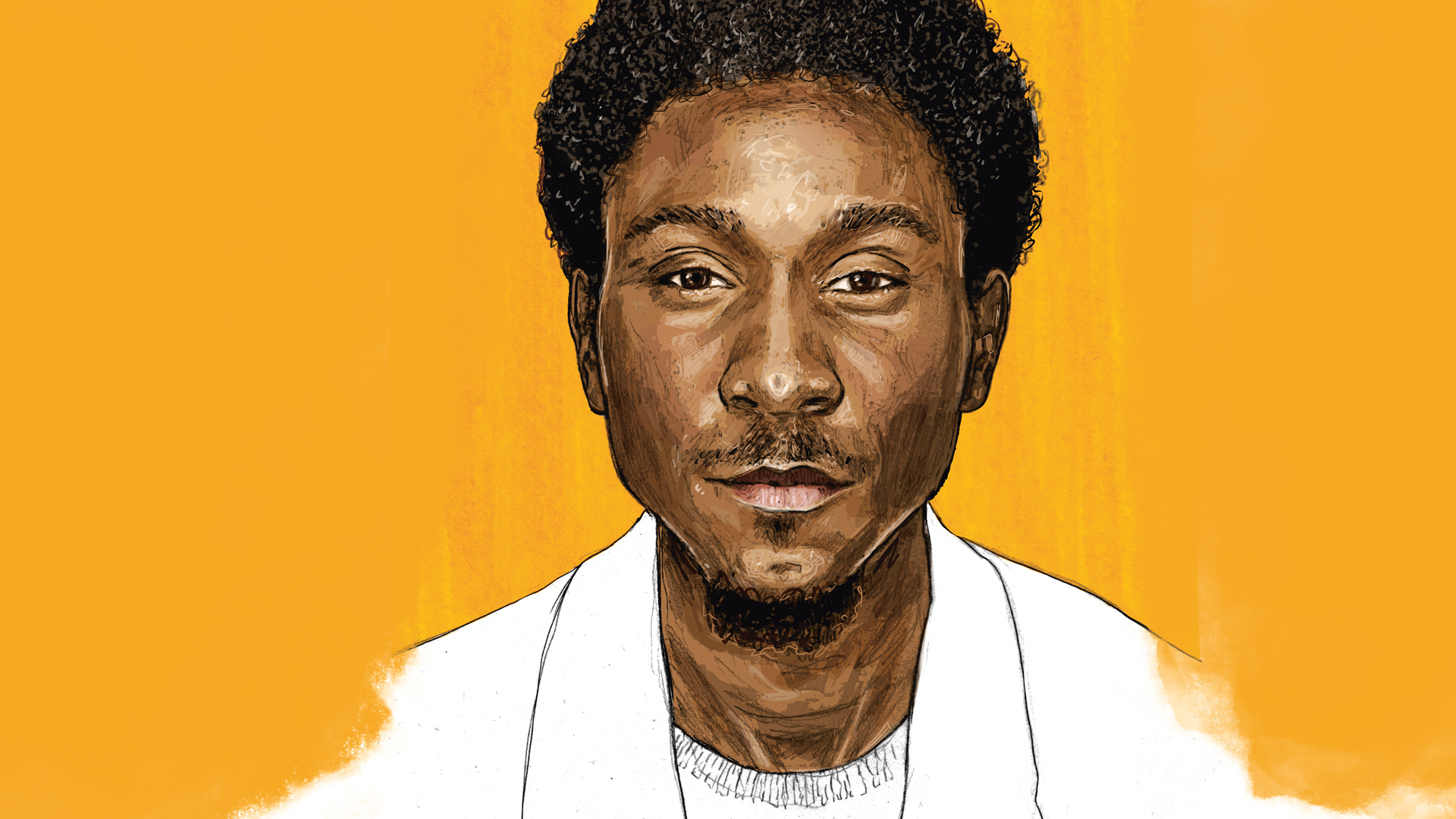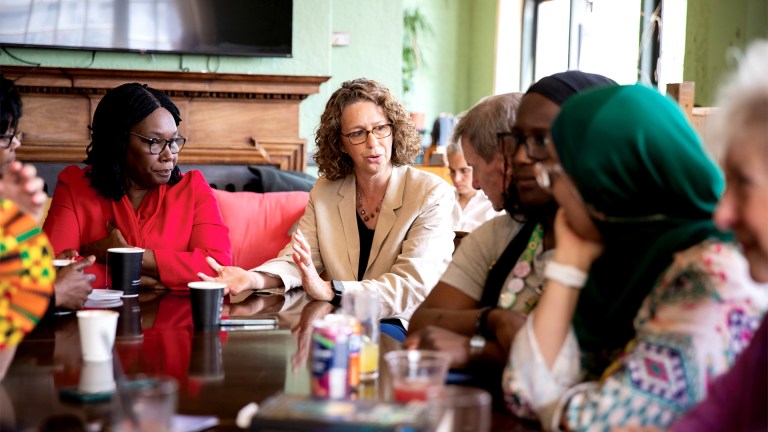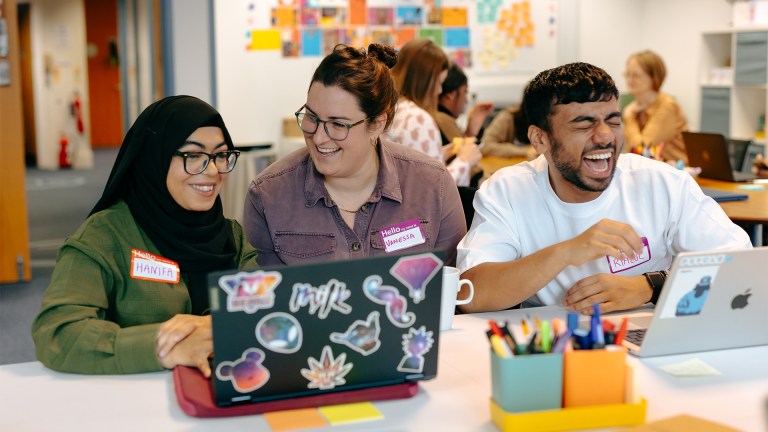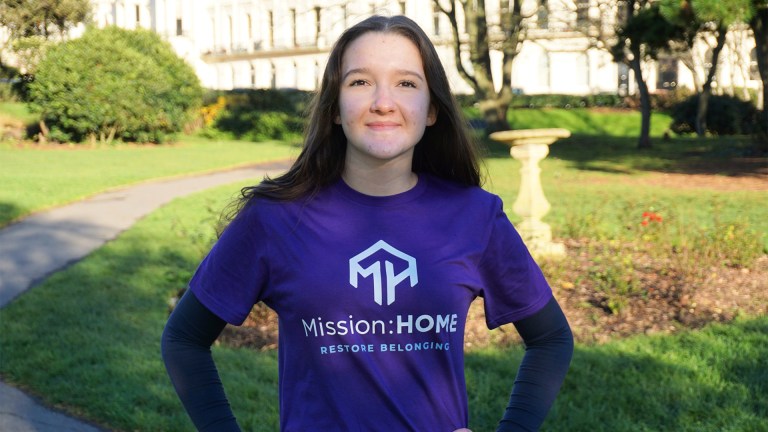It’s time to change the narrative for black men in the UK. That’s what Cephas Williams thought when he decided to pursue a hard-hitting photography series that would become 56 Black Men: a campaign that pushes back against the racist portrayal of black men in the media and in the context of growing knife crime. The founder is on a mission to spotlight the achievements of black men “while they are alive, not just when they’re murder victims or suspects”.
Williams, 28, grew up in South-East London and developed an interest in architecture at a young age. He studied it at university, but eventually Williams quit to focus full-time on a derelict building on Peckham High Street that he was determined to turn into a creative space for the surrounding community, calling it Drummer Boy Studios. He sunk his savings into it to turn it into a photography and recording hub. “Lots of creative people in the black community don’t have access to somewhere they could express their talents,” he explains.
But he felt pushback from the council and others in the area. Williams couldn’t understand why a project like that wasn’t being supported, and seemed totally shut out from any available funding streams. At times he was forced to sleep in the studio, with nowhere else to go. “I felt frustrated,” he tells The Big Issue. “I very much got the impression that the reason we weren’t getting support was because we were young black men.”
At the same time, a rise in knife crime around London in particular was making headlines – a time when “young black men were always being singled out,” Williams says.
In the past year, the photoseries has been exhibited regularly, including in the US Embassy
Then, he says, the idea came to him in a dream. Fifty-six black men – the number of people in the local black community who had been killed in 2018 – in hoodies, alongside outlines of their stereotype-defying lives.
In August last year, Williams floated the idea with his friends. Almost all of them discouraged him from pursuing the idea. “I was told don’t launch it before Christmas, because nobody wants to talk about black people problems on Christmas Day,” he says. “One guy I approached, in a very respectable job, said he was scared. He said ‘I don’t know what the media would do if they got a picture of me in a hoodie.’”









